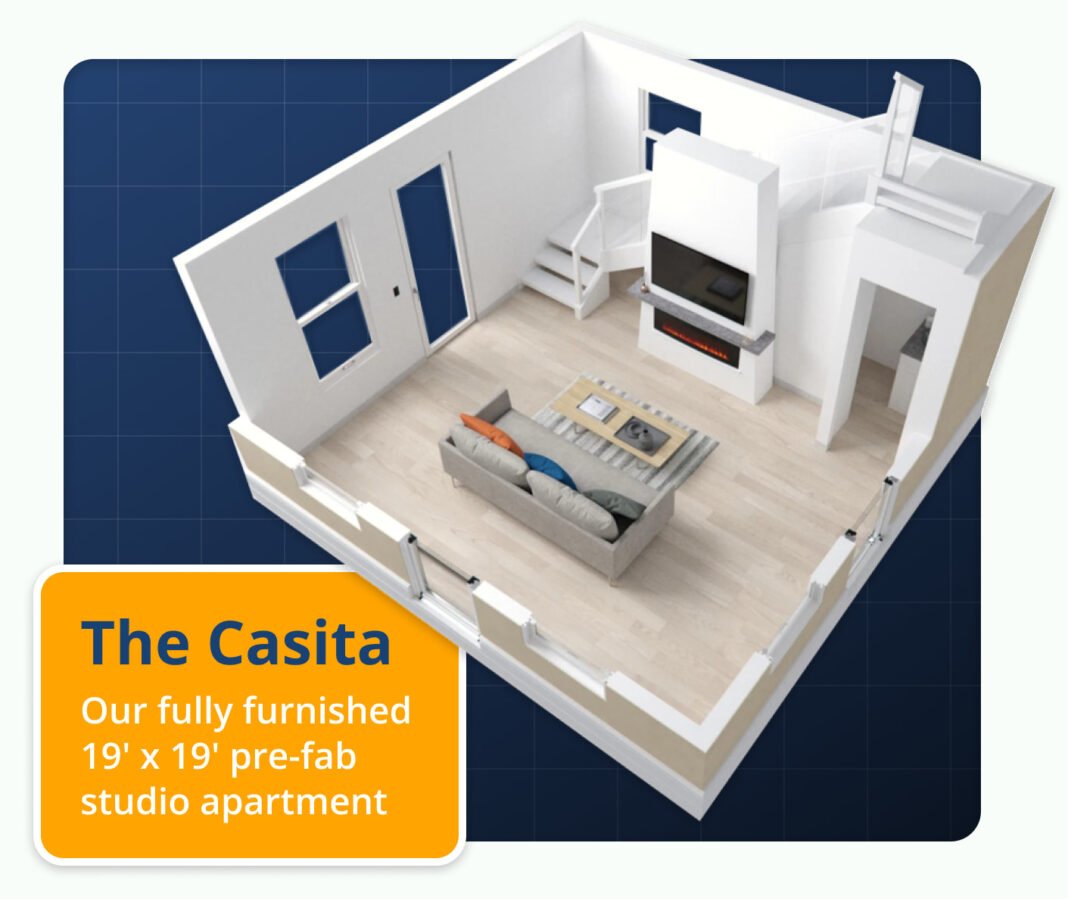Boxabl has struck a merger deal with FG Merger II, setting a lofty $3.5 billion valuation as it prepares to list on Nasdaq under ticker BXBL. The SPAC-FGMC will issue 350 million shares to Boxabl in the deal. A paper valuation, but a valuation nonetheless.
Sounds great until you realize Boxabl has virtually no revenue. Its latest quarterly sales clock in at roughly $123,000, down from about $625,000 the previous year. Losses? Still in the millions per quarter. If that’s not flashing danger signs, what is?
How Crowdfunding Built the House Despite the House Being Very Empty
Boxabl claims to have raised over $230 million from traditional investors, and more than 50,000 retail investors via their Regulation A (Reg A+) crowdfunding rounds, with share prices around $0.80.
But here’s the kicker: Boxabl’s own filings show its valuation in prior rounds as high as $3.5 billion, even before producing meaningful sales. That puts its price‑to‑sales ratio at an eye‑popping 10,000× revenue. Yes, you read that right.
Retail investors weren’t just buying some speculative promise, they’ve been handed a very aggressive, and some would say unrealistic, valuation at a moment revenue is cratering.
Revenue Plunge: From DoD Boom to Back to Square One
Boxabl’s 2022 revenue spike came from a single order of 156 Casitas delivered to the U.S. Department of Defense for housing at Guantanamo Bay. Since then? Revenue has collapsed. Down 96.8% YoY by last year. In 2023 they made only about $344,000 total, burning through nearly $40 million in losses.
Burn rate is brutal at $3 million per month, while deposit refunds surged, signaling falling trust. Customer deposits dropped from $3.3 million in 2022 to just $435,000 in 2023, and the company refunded nearly $1.5 million in deposits.
What It Means for Retail Investors
You’re locked in. Shares bought via Reg A crowdfunding don’t trade freely. Unless Boxabl arranges a secondary or IPO liquidity event, those retail investors are stuck holding stock that’s valued by founders, not market demand.
Valuations driven by optimism, not fundamentals. With revenue evaporating and massive cash burn, the same investors who paid $0.80 per share are banking on future growth to justify a $10 share price post-SPAC.
Dilution risk looms large. The SPAC deal brings only about $80 million in trust, but with typical SPAC redemption rates (~70%) and no disclosed PIPE financing, Boxabl may see only $24 million in net cash unless more investment materializes.
Where Boxabl Raised Capital from Retail Investors
- Their Own Website (Self‑Hosted)
They’ve been crowdfunding directly through their site—this lets them control the sales funnel, avoid platform fees, and lean on their own marketing muscle versus relying on platform traffic. - Wefunder: Early seed/Reg CF round in 2021—about $3.2 million raised.
- StartEngine: Major play here. Multiple rounds across Reg CF and Reg A+ through much of 2021–2025.
- Republic: Used alongside StartEngine in an August 2022 Reg CF/Reg A+ raise, with over $1 million raised there.
- DealMaker (White‑Label / Broker Integration)
For their 2024 Reg A raise, Boxabl used DealMaker, a white-label service, alongside StartEngine. This dual-channel approach helped them bring in significant capital—> $7.7 million in just three days, with funds flowing through both DealMaker and StartEngine. - Dalmore Group (Broker‑Dealer Support)
Behind the scenes, Boxabl enlisted Dalmore Group, a FINRA-registered broker-dealer, to manage compliance and co-list offerings. These types of support help Boxabl spread their raise across platforms, reduce fees, and streamline investor onboarding.
The Low‑Down
Raised ~$230M, largely from inexperienced retail investors via Reg A crowdfunding.
Valued at $3.5B heading into Nasdaq listing, despite brutal financials.
Revenue tanked 96.8%, from $625K to $123K quarterly; annual revenue last year just $344K.
Massive losses (~$40M), cash runway shrinking fast, refunding buyers as trust erodes.
Crowdfunders stuck with illiquid, founder‑valued shares and no operating traction.
SPAC proceeds modest unless sweetened with PIPE, meaning dilution or thin runway could hit soon.
What Boxabl Public Filings Tell Us
Base Salary & Bonuses (2023)
The co‑CEO duo, Paolo and Galiano Tiramani, each rake in a $595,000 base salary annually, with the board approving $297,500 in bonuses for each—totalling around $892,500 per founder in 2023.
Equity and Perks
They’re dishing out stock-based compensation too—while exact founder equity payouts aren’t spelled out, we know that in 2022 and 2023, Boxabl booked $8.7M and $7.2M, respectively, in stock-based comp (across the company).
Martin Costas, the CFO, got a $5M RSU grant tied to future liquidity events.
Their employment deals include lavish perks: security personnel for their families, company vehicles with gas/insurance, and even testing prototypes at home. All on Boxabl’s dime.
What Investors Are Saying on the Street
There’s no sugar-coating from the crowd:
“The CEO pays himself and his son $1 million each a year, despite all this struggle.”
And don’t miss this zinger:
“The father and son conveniently gave themselves raises to over $800,000 USD each after investments and pre‑orders started rolling in.”
Founders Are Cashing In While Revenue Tanks
The founders pay themselves nearly $900K in cash compensation (salary + bonus) per year.
They enjoy clearly cushy perks. From private security to fancy company vehicles.
On top of that, they’re sitting on potentially lucrative stock incentives, lumped within the millions paid out company-wide.
All of this is playing out while actual revenue is near zero and losses are in the tens of millions. A mismatch that turns heads and raises eyebrows.
Boxabl’s hype machine drew in thousands of retail investors dreaming of being part of a housing revolution. Instead, they got a startup with a billion‑dollar vision and barely a million in actual revenue. The SPAC deal hands them visibility—but can Boxabl deliver? If its financials don’t improve fast, those $10-per-share hopes could deflate just as quickly.



